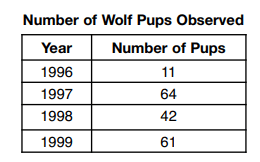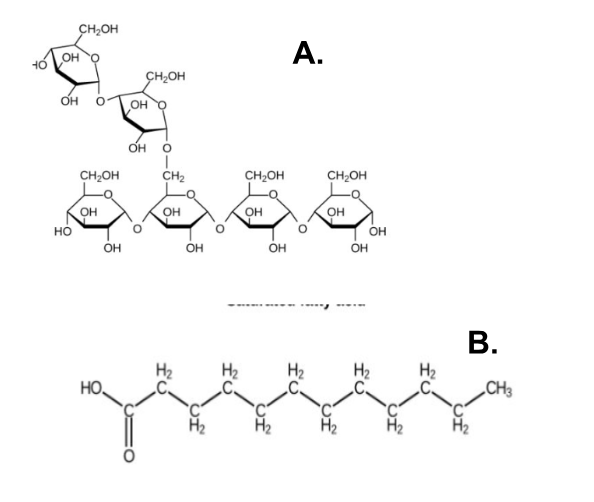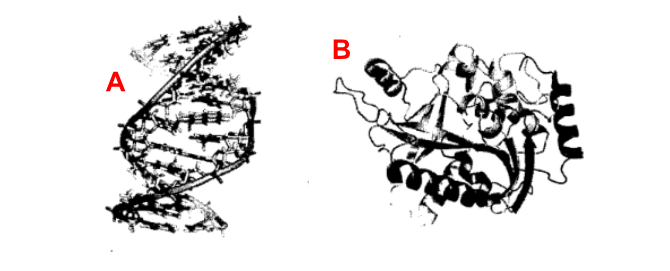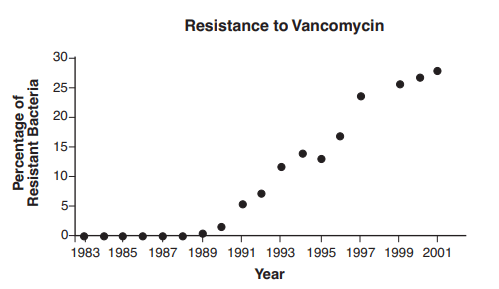This prefix means "one" and is used to describe simple sugars.
Mono-
This property of lipids prevents them from mixing with water.
Insolubility
This is the building block monomer of proteins.
Amino acids
This is the abbreviation for deoxyribonucleic acid.
DNA
In an experiment, the setup that provides a basis of comparison is known as:
This complex carbohydrate is used for food storage in plants.
Starch
A triglyceride is composed of glycerol and this many fatty acid molecules.
3
This element is found in proteins but not in carbohydrates or lipids.
Nitrogen
This is the building block of nucleic acids.
Nucleotides
"The height of bean plants depends on the amount of water they receive."
The amount of water they receive is the ___________.
The independent variable
These elements are found in all organic compounds.
Carbon and hydrogen
These 3 elements are found in lipids.
Carbon, hydrogen, oxygen
This is one function of protein in the body.
Repair body tissues, prevents infections and illness, hormones, enzymes
This 5-carbon sugar is found in RNA but not in DNA.
Ribose
On the data table below, identify the dependent variable:

Number of pups
Which structure is showing a carbohydrate?
A
This type of fatty acid contains at least one carbon-carbon double bond.
Unsaturated
This prefix meaning "large" describes complex biological molecules.
Macro-
These 5 elements are found in nucleic acids.
Carbon, hydrogen, oxygen, nitrogen, and phosphate
The rat mass is the ____________ variable in this experiment.
Four groups of rats are first massed and then fed identical diets except for the amount of vitamin A they receive. Each group gets a different amount. After 3 weeks on the diet, the rats’ masses are measured again to see if there has been a decrease.
Dependent variable
This function of a carbohydrate is often confused with a function of protein.
Quick energy
Lipids function primarily for this type of energy storage in the body.
Long term energy
Which molecule is a protein?
B
This single stranded helix makes proteins.
RNA
What is the percentage of resistant bacteria in 1991?

5